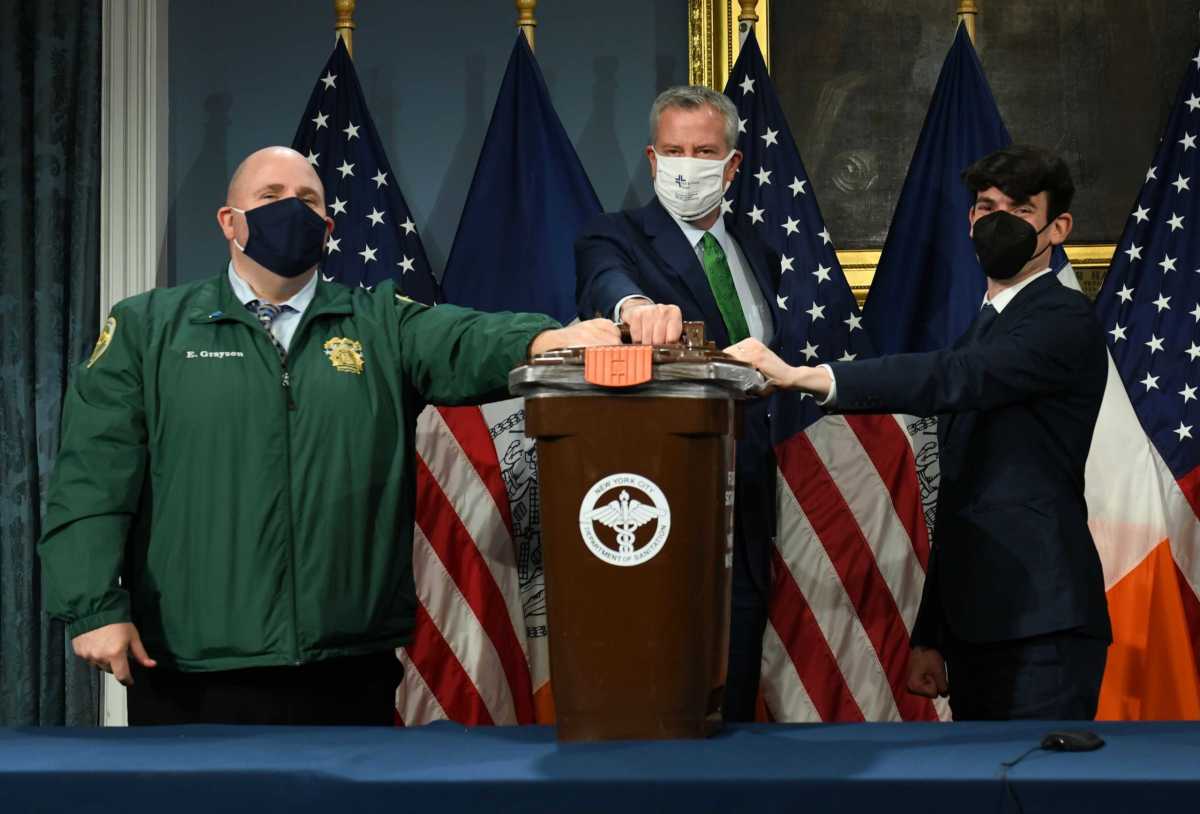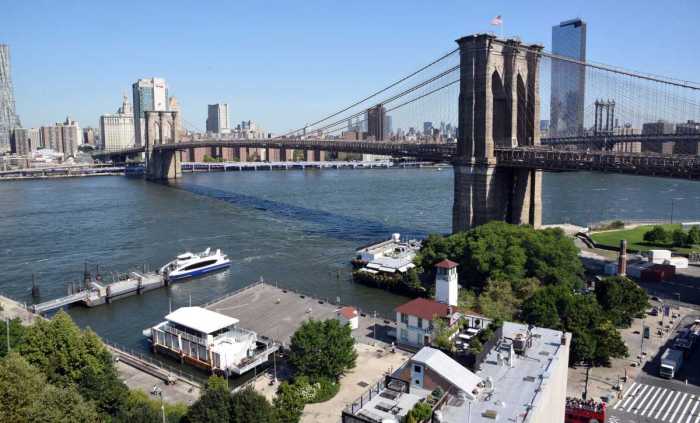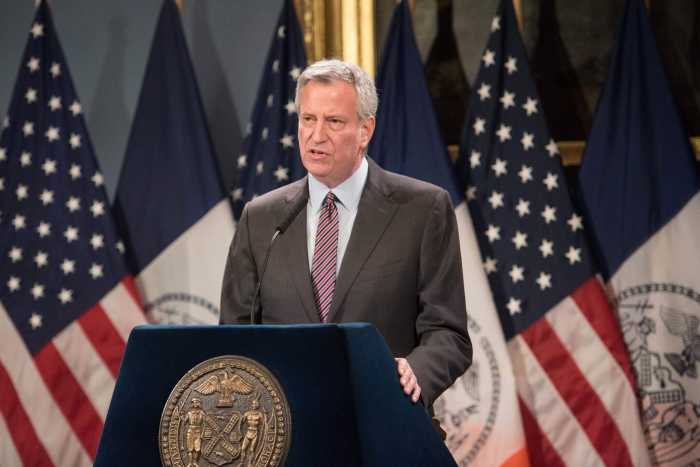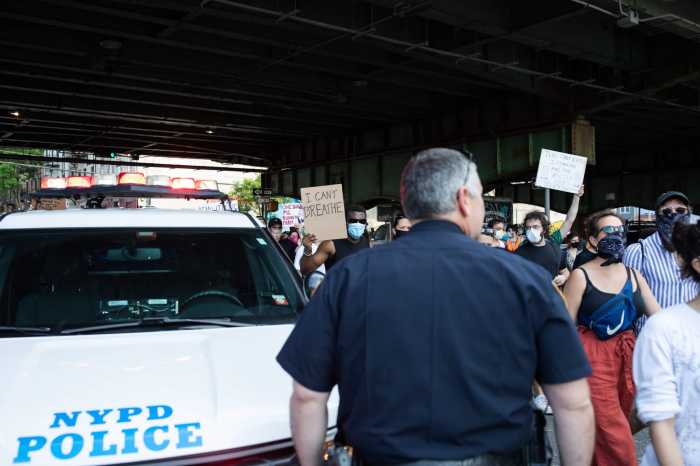Eco-friendly New Yorkers can rejoice, as the city will restart its curbside composting pickup program this fall, Mayor Bill de Blasio announced Thursday.
“We will be resuming our curbside composting program in New York City,” said de Blasio at his April 22 press briefing. “It is coming back, it was on hold during COVID, but now, thankfully we have the resources to bring curbside composting back.”
Sanitation trucks will start collecting food and yard scraps in dedicated brown bins in some parts of the Five Boroughs starting next October — ending a nearly year-long pause of the composting initiative spurred by COVID-19 budget cuts.
Homeowners and buildings in community districts that were previously eligible for curbside pickup last year will have to re-enroll through an online portal that launches in August, said the city’s trash czar.
“Our efforts to send zero waste to landfills is an important part of achieving climate goals,” said Department of Sanitation Commissioner Ed Grayson at the Thursday press briefing. “We’re looking forward to this approach, we think that this is the right way to get back into the curbside program, and it’s very exciting.”
The announcement comes on the heels of former DSNY chief Kathryn Garcia — a mayoral candidate — demanding the city bring back the scrap Wednesday.
Organics make up about 30 percent of residential waste in the city, and composting the materials can divert them from incinerators or landfills where, left to rot, they emit the harmful greenhouse gas methane, which is 25 times more potent than carbon dioxide.
Instead, the materials can be recycled into nutrient-rich compost that the city can feed back into the soil of parks and community gardens.
The city also aims to double the amount of community composting sites around from around 100 to 200, and school curbside composting will return back to the almost 1,000 educational facilities that had it pre-pandemic, Grayson said.
De Blasio put the city’s already-struggling organics pickup and composting program on pause in May as part of slashing Sanitation’s funds by $160 million amid a cratering pandemic city budget. Initially, the agency didn’t plan on reviving it until June 30, 2020, seven months after Hizzoner departs Gracie Mansion for his Park Slope home.
At a community farm in Red Hook Wednesday, Garcia called that cut a mistake and demanded officials bring the program back, expand it to all of the city, and make it mandatory rather than voluntary to ensure it works.
The original program, which then-Mayor Michael Bloomberg launched in 2013, suffered from a chronically low participation rate of just 10 percent under de Blasio’s management in a sporadic coverage area, which included north and west Brooklyn; the north Bronx; western, central, and eastern Queens; and northwest Staten Island.
In other cities, particularly on the west coast, organics recycling has been mandated for as long as a decade with far higher success rates. For example, San Francisco made organics recycling mandatory in 2009 and saw a diversion rate of 80 percent three years later — the highest of any city in the nation.
De Blasio balked at the idea of making the program mandatory in the Big Apple, saying even though he considers himself an “obsessive composter” other New Yorkers might need some time to get used to it.
“We know some people are ready to participate right now, I’m going to be back at my home in Brooklyn starting on January 1, I’m looking forward to participating in organics directly,” the mayor said. “But other people are not into it, are not ready for it, or don’t have the space right now or whatever it may be. So we want to pinpoint, literally building by building who’s in who’s out so we can structure this properly.”
Garcia said the mayor’s move was a step in the right direction — but slammed the opt-in approach as not going far enough.
“The mayor’s ‘compost comeback’ plan to restore the program on an opt-in basis via enrollment doesn’t go far enough. Worse, it is going to turn composting into a ‘luxury’ that is available for New Yorkers that have the resources to organize community support and submit bureaucratic paperwork. Curbside organics should be universal – plain and simple,” Garcia said Thursday. “We need to make the curbside organics program mandatory, permanent, and ensure equity in its design by leaving no neighborhood behind. There is no half-way on an issue as important as the fight against climate change.”
























